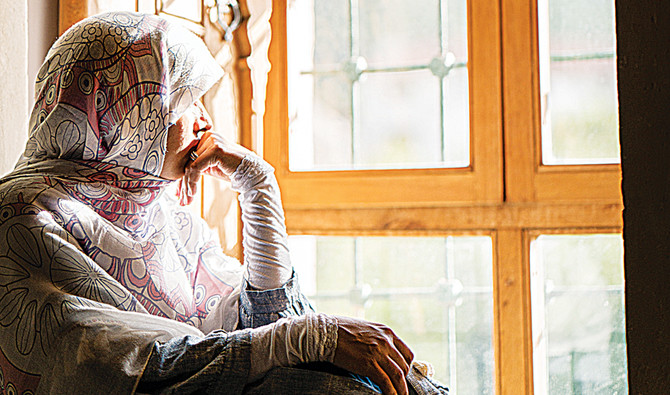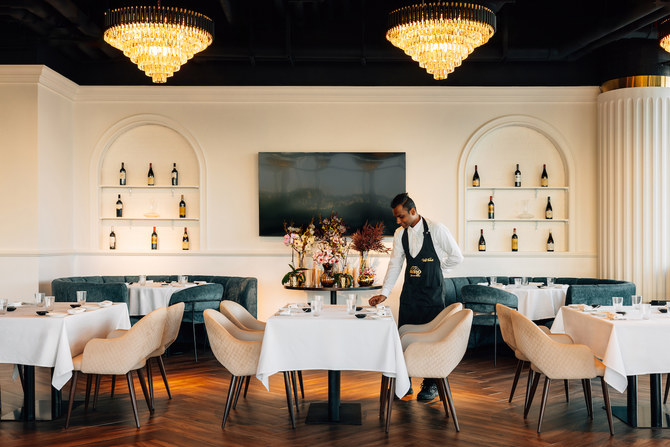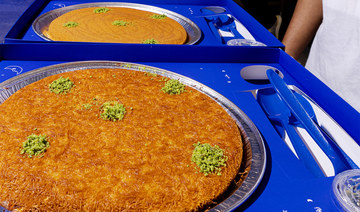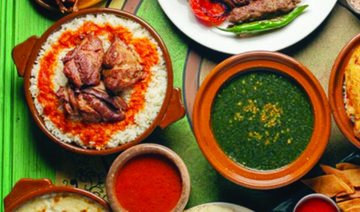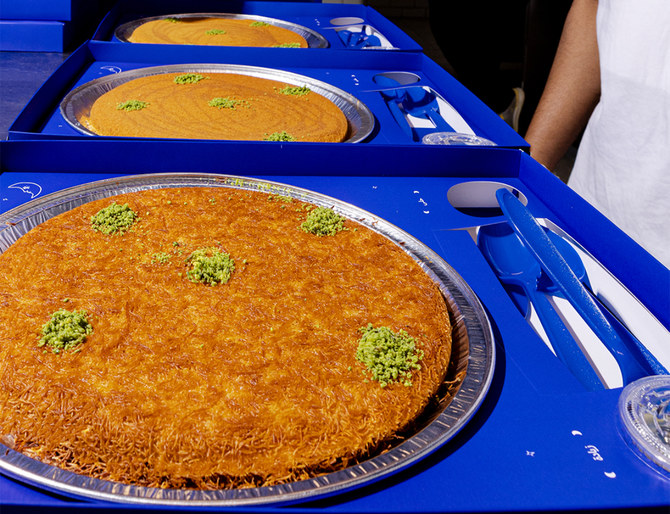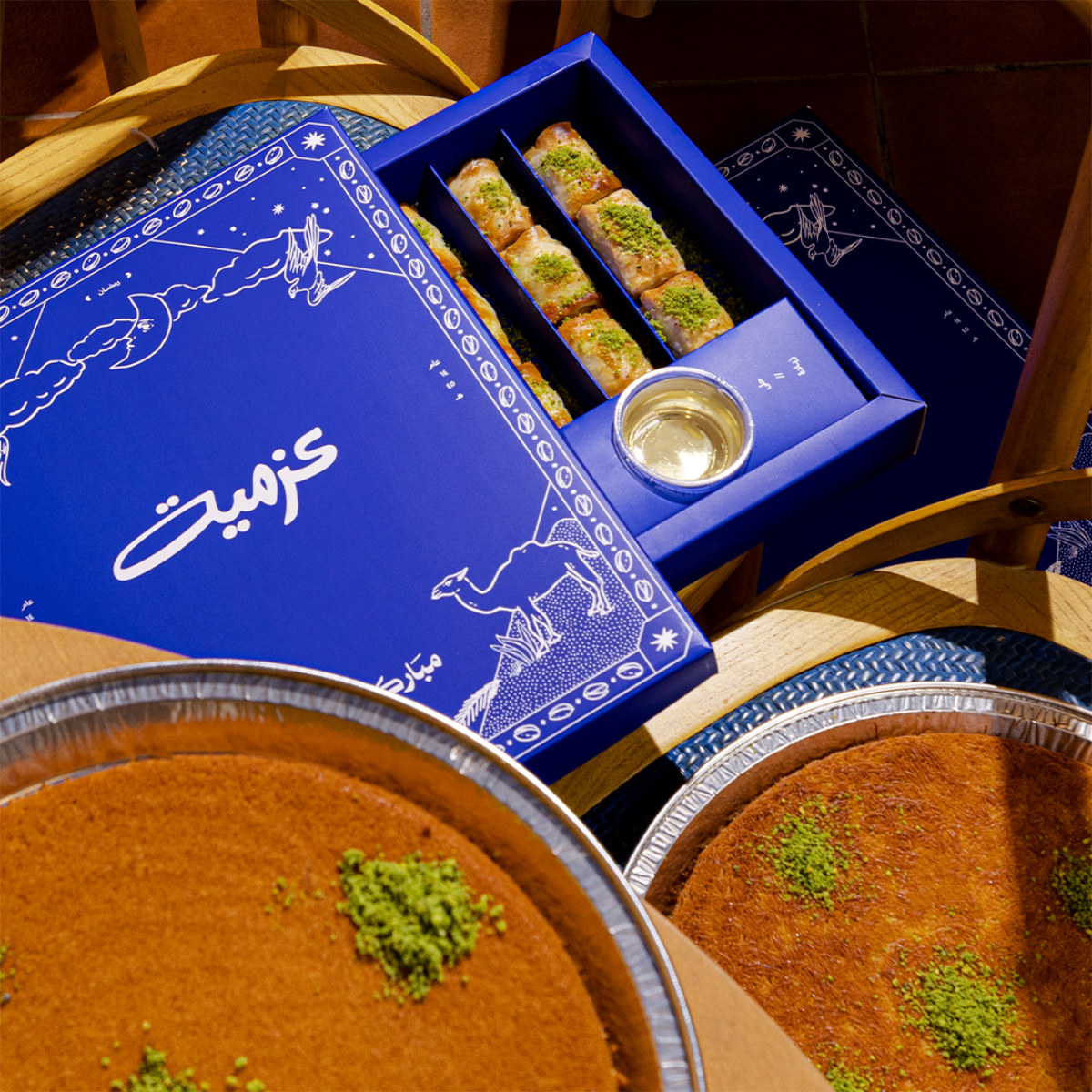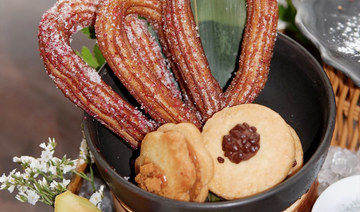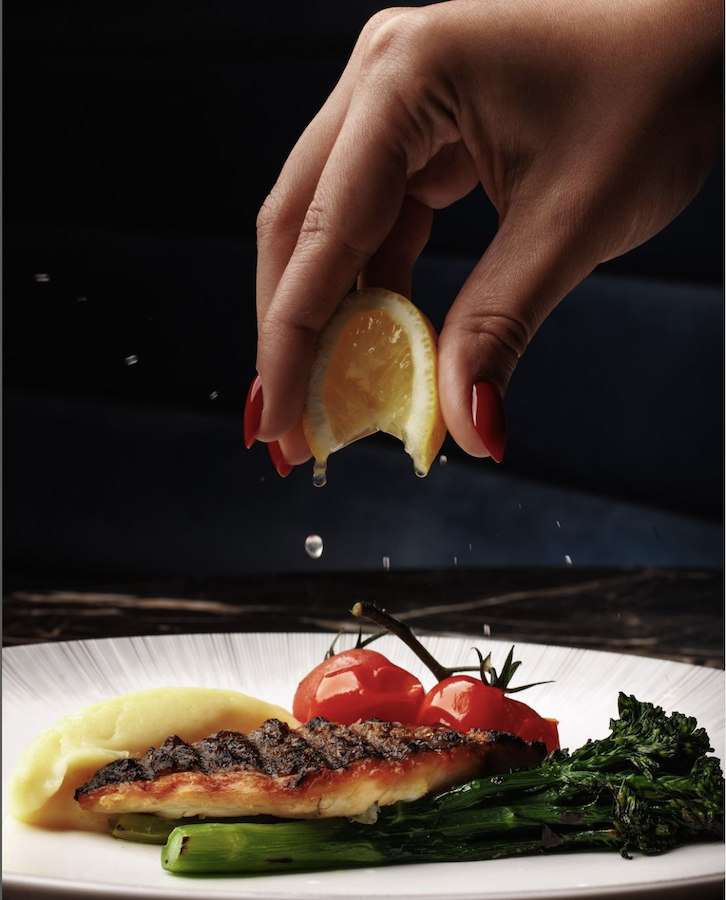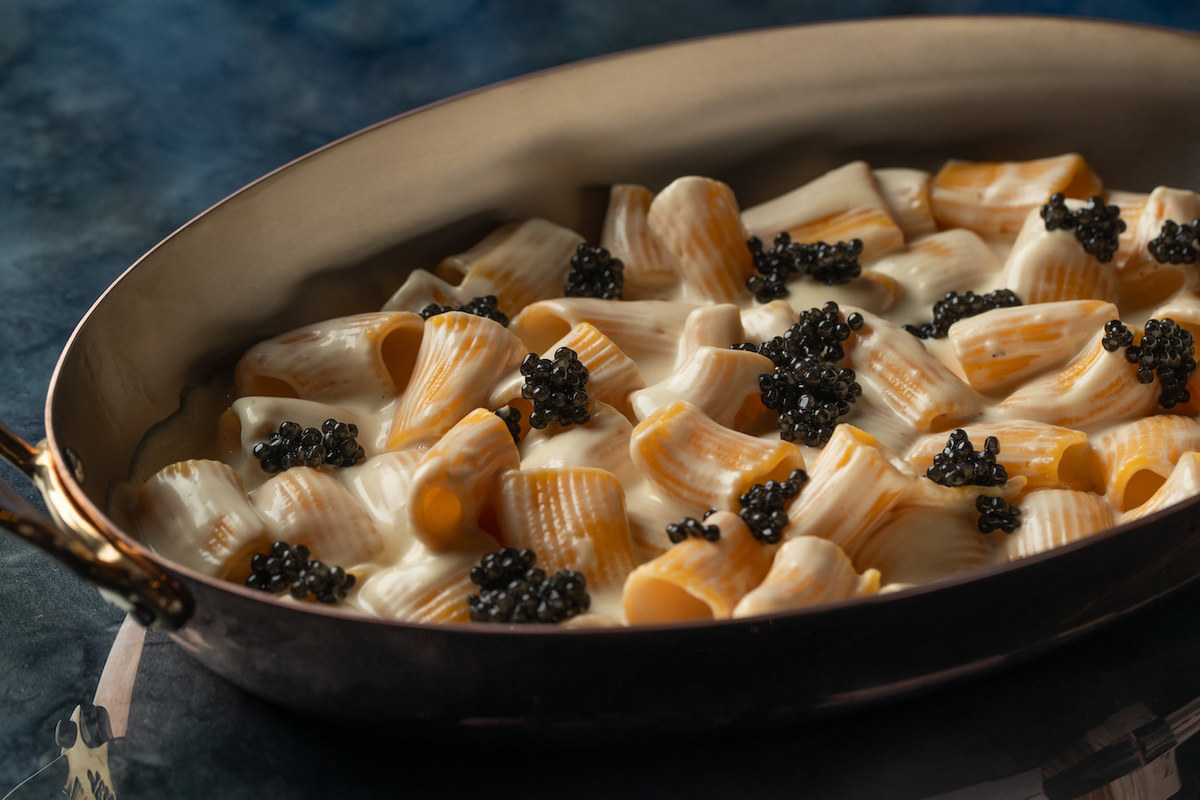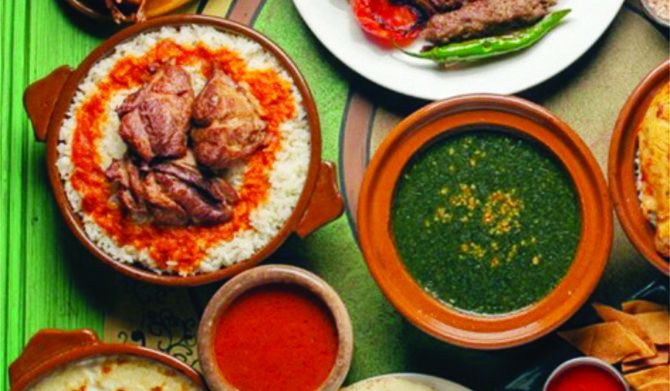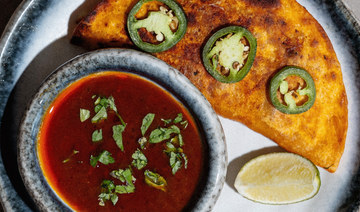DUBAI: People throughout Saudi Arabia and the Middle East may be suffering from bipolar disorder without knowing it, as a lack of awareness about the condition, coupled with a continuing cultural stigma, prevent them from being diagnosed.
Bipolar disorder, also known as manic-depressive illness, is a brain disorder that causes unusual shifts in mood, energy, activity levels and the ability to carry out day-to-day tasks. It can cause manic episodes of elevated high energy as well as periods of depression.
Dr. Dalia Rizk, a specialist psychiatrist at Al Zahra Hospital in the UAE, claims that despite it being a common mental health issue, many people in the Middle East are either being diagnosed late — or not at all.
She said bipolar disorder is characterized by manic highs and manic lows, adding: “Both are dangerous states. When the person is in a manic high state, the patient can feel euphoric and impulsive, leading to actions which he may regret later. When in a manic low state, the person can feel depressed, sad and loses pleasure or interest in any activity. Both can affect sleep, energy and the ability to think clearly and rationally.”
The consequences of not being diagnosed and treated early can be catastrophic, she warned. “Over time, if not treated, it can lead to suicide if a person is feeling hopeless in a manic low state.”
Late diagnosis, or failure to seek help, is down to a combination of factors, said Dr. Rizk.
“First of all, it is easier to spot somebody in a manic high state,” she said. “When we see someone depressed, people think, ‘Maybe it will pass, maybe it is a weak personality.’ And also, in our culture, people may also say, ‘He is not close to God, perhaps if he prays more he will be fine.’ Consequently, people with this disorder do not get diagnosed, and don’t get the treatment they need.”
 A 2017 study, “Mental health literacy in bipolar disorder: A cross-sectional survey in Saudi Arabia,” found that “stigmatization of individuals with mental illnesses is widespread and serves as a major barrier to treatment.”
A 2017 study, “Mental health literacy in bipolar disorder: A cross-sectional survey in Saudi Arabia,” found that “stigmatization of individuals with mental illnesses is widespread and serves as a major barrier to treatment.”
The study assessed mental health literacy in bipolar disorder among the Saudi population through a questionnaire distributed to hundreds of Saudi adults in malls, university and hospitals in Riyadh. The study’s author, Prof. Fahad Alosaimi, an associate professor and consultant of psychiatry and psychosomatic medicine at King Saud University’s College of Medicine in Riyadh, said while about half of those quizzed had heard about bipolar disorder, more than half of that number had misconceptions about its causes and about half did not believe psychiatric medication was an effective treatment, instead suggesting praying as an alternative method. In his report, Alosaimi concluded that the study showed the need for further improvement in awareness of bipolar disorder in the Kingdom.
Dr. Rizk said the medical community also has problems diagnosing the disorder. “If people with such symptoms go to a family doctor and they do not refer to a psychiatrist, it can take years to diagnose,” she explained. “Part of the delay in diagnosis is the doctors. Maybe they do not know about all the symptoms and consequently, a lot of GPs prescribe antidepressants without knowing antidepressants for a bipolar patient can make it worse and actually trigger another attack.”
Stigmas and misconceptions around mental health illnesses are also a barrier to diagnosis and treatment, said Dr. Rizk. “People simply do not want to be seen as a mental health patient. They are ashamed. And culture is another factor. With mental health, people have superstitions and believe it is a ‘demon’.”
What this means is that, given the lack of people coming forward to seek help, the true prevalence of bipolar disorder in the Kingdom and the wider Middle East is unknown, said Dr. Rizk. Internationally, the prevalence is about 2 percent of the population.
The specialist said more awareness programmes are needed to tackle the stigma and misconceptions about the disorder — and about mental illness in general.
“Stigma comes out of ignorance,” she said. “People tend to be afraid of antipsychotic medication. They have the wrong assumptions it will damage brain cells and they will be addicted and it will make them like zombies. It is completely wrong.
“Like anything, with more awareness there is more understanding. When you know better about a condition it is easier to encourage people to seek help and to have — and stay on — treatment. We need to normalize such mental health conditions and show it is nothing to be ashamed about.”
Bipolar disorder is treated with a combination of antipsychotic medication, which acts as a mood stabilizer, and psychiatric therapy to educate a patient on how to spot an oncoming manic attack and to offer help to patients who often feel ashamed, depressed and traumatized after an episode.
While further work is needed, Dr. Rizk said that the situation is improving. “Ten years ago people didn’t see psychiatrists at all. Now, we have lots of hospitals and clinics across the Middle East. The idea of seeing a psychiatrist is becoming more normal. More people do try and seek help. Governments are also working to raise awareness. But with all the problems in the Middle East — wars, financial worries etc — all mental health issues are on the rise and we do need more awareness.”
Although no specific cause for bipolar disorder has been determined, a person’s genes, brain structure and environment could all play a role, according to the National Alliance on Mental Illness. Certain lifestyle and environmental factors — loss of sleep, alcohol or recreational drug use — can also trigger or aggravate bipolar mood episodes.
Shorouk Nafie, a psychotherapist at Dubai’s German Neuroscience Center, said that the symptoms of bipolar can sometimes be so extreme that they interfere with everyday life.
“The highs and the lows can pose many challenges to living a stable and fulfilling life personally and professionally,” she said. “In addition to the strain on the individual and their loved ones, some of the symptoms can also be quite dangerous — whether it is the risk of suicide during a depressive episode or the reckless behavior during a manic episode.”
She too feels a lingering stigma surrounding mental health issues in the Middle East is preventing people from seeking help. “Stigma exists around mental health everywhere, perhaps to varying degrees,” she said. “It has been getting more attention over the years, and it is inspiring to see people speaking up about their experiences.
“More work is still needed, but perhaps it is also our responsibility as professionals to reach out to people and let them know that there is help and support available to them. It is our responsibility to instil hope and let people know that they do not have to suffer in silence.
“The more treatment options we have available, the better the chance that people will find the right fit for themselves. Whether these are residential programs, outpatient clinics, one-on-one psychotherapy and counselling or support groups, that can be an invaluable resource.”
Dr Rasha Abbas, a psychiatry consultant at Danat Al Emarat Hospital and HealthPlus Diabetes & Endocrinology Center in Abu Dhabi, agrees that too few people in the Middle East are being treated for bipolar disorder.
“Fear of being labelled and fear of the impact of the diagnosis on one’s personal and professional life also plays a role in failing to seek help early. Yet if not diagnosed and treated early enough, it can have a damaging effect on the person’s physical, psychological and social well-being.”



